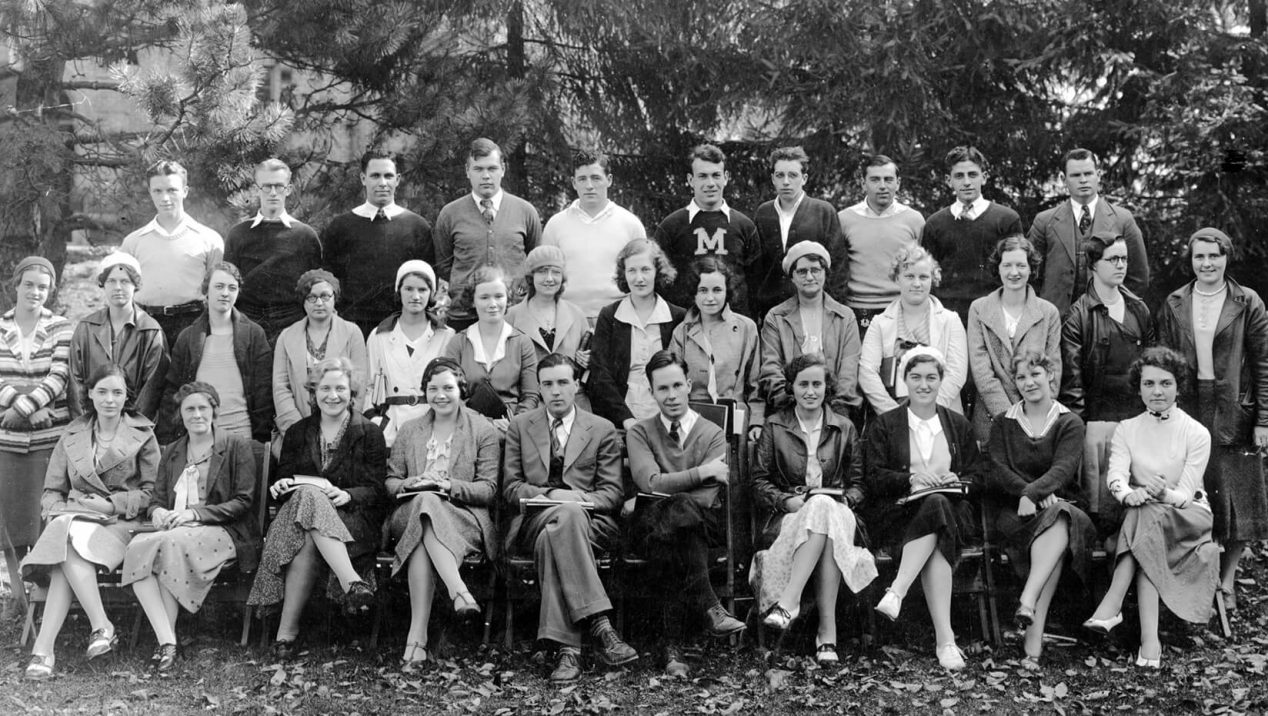
English Department, circa 1931
1925–1934
- April 16, 1925, 80 women — faculty, alumnae and undergraduate representatives — met in Balentine Hall to pledge to a new honorary organization — All Maine Women. Induction was held six days later.
- President Little resigned in 1925 to take a position at Michigan State University. In his resignation letter he wrote: “At the present time the State of Maine is lagging woefully in its support of the State University…There is not as yet enough unprejudiced support of higher education in the State…”
- WGBX, the university’s first broadcasting station, went on air Jan. 24, 1926. Programs, including concerts, lectures and athletic events, were broadcast twice a week from the studio in Wingate Hall.
- Harold Boardman, class of 1895 and longtime dean of the technology college, became president in 1926.
- In 1926, Memorial Field House-Armory was finished. Constructed in honor of 41 UMaine graduates who died in World War I, it was funded entirely by contributions from alumni, faculty, students and administrators. It was the largest indoor field house in the United States.
- In 1928, Edmund Black ’29 won the bronze medal in the hammer throw at the Summer Olympics in Amsterdam, Netherlands. Carl Ring ’25 competed in the 110-meter hurdles.
- In 1929, Harry Richardson ’30 and Francis Lindsay ’30 were crowned co-national cross-country champions when they ran across the finish line hand-in-hand at Van Cortlandt Park in New York City.
- In 1930, a school of education was created.
- In 1931, Merrill Hall was dedicated; in 1933, Memorial Gymnasium and Armory was dedicated; and in 1934, Stevens Hall was dedicated.
- In 1932, due to the Depression, faculty volunteered a 5 percent cut in their salaries and the price of board for students was trimmed $1 a week.
- Arthur Hauck, became president in 1934. His 24-year tenure is the longest to date. In his inaugural speech, Hauck, whose specialty was international relations, promised teacher education would be a priority. At the opening assembly in 1934 he promoted student civic duty.
- The Faye Hyland Arboretum was created in 1934.
